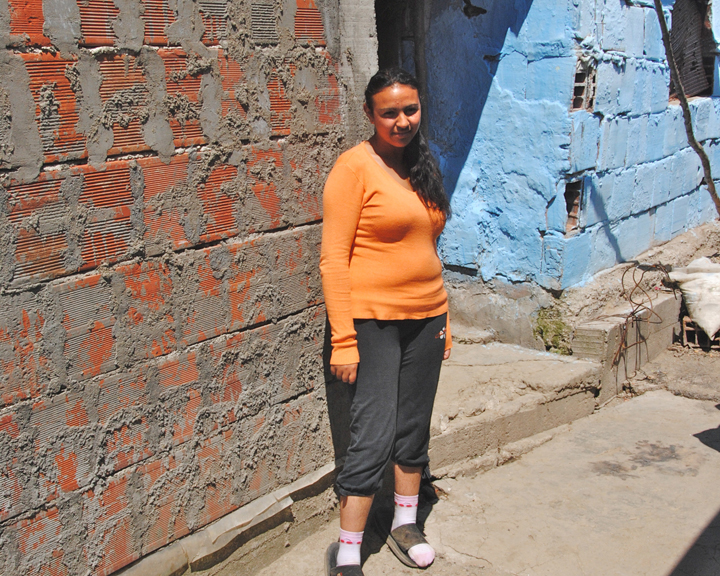

Securing equal rights for Serbia’s Roma minority

21-year-old Anita Jovic from Lebane, Serbia recently received her very first state-issued identity card. Now in the government’s registry book, she is finally entitled to health care, schooling and all the rights of a citizen -- one of 250 members of the Roma minority who are no longer legally invisible, thanks to assistance from the MDG-Fund.
“I have never left our Roma settlement in Lebane, and when I needed to, someone had to come with me" says Anita. “I felt like a minor, because only a month ago did I receive an ID card. Everything was difficult, I never went to school, we were eight in the family and we did not have money for books or for clothes.”
Anita’s story is not uncommon. Many of Serbia’s more than 100,000 Roma are not registered at birth, and a lack of personal documents bars them from most public services, from health care and education, to social assistance and employment – all of which contribute to the Roma’s feelings of marginalization from mainstream Serbian life.
The key obstacles to obtaining personal documents are the time-consuming and complicated procedures necessary to be entered into the civil registry books, the near-impossibility of providing a permanent residence and ignorance among Roma parents about the importance and benefits of birth registering. Poverty and illiteracy also create barriers: most Roma families are unable to afford the fees to initiate administrative procedures and obtain their documents.
To foster the social inclusion of Roma and enable them to exercise their basic human rights on an equal footing with other Serbian citizens, the MDG-F-funded UN joint programme on Peacebuilding and Inclusive Local Development (PBILD) has since September 2010 been assisting Roma in the south Serbian districts of Jablanica and Pcinja by providing free legal advice to help them get registered.
Implemented by the NGO PRAXIS, the programme has so far assisted 252 Roma to access their personal documents, and has conducted meetings between Roma community leaders and representatives of municipal authorities and service providers, to raise awareness on both sides of the difficulties facing unregistered Roma.
“While civil registration procedures are time-consuming and complicated, with greater efforts the whole Roma population could, it has been shown, obtain their ID cards, allowing them to access the full range of services provided by the State,” said PBILD’s Programme Manager Nicholas Hercules. “In one case we were even able to assist three generations of one family obtain their personal documents, enabling the child to start school, her mother to receive health care and the grand-mother to obtain a pension.”
The PBILD programme, a collaboration between six UN agencies (UNDP, UNICEF, UN-Habitat, UNHCR, ILO and IOM) and PRAXIS, will last until August 2012. Its aim is to assist the Serbian government to create stronger, more integrated communities with greater prosperity and less discrepancies in wealth and employment between ethnic groups. Lowering the risk of conflict is a key factor in attaining the Millennium Development Goals of halving the number of people living in poverty and hunger by the year 2015.
Click here to read more about the MDG-F's peacebuilding work in Serbia.